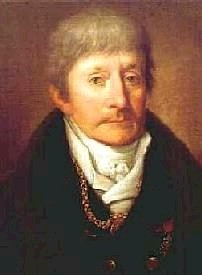|
|
World music CD DVD shop and Classic distribution
|
|
|
|
Composer: SALIERI, Antonio ((1750-1825)) |
 | His/her music:
Wrote over 40 operas, most notably "Tarare", "Axur, re D'ormus" (Lorenzo da Ponte's translation Beaumarchais's libretto of "Tarare" into Italian), "Les Danaides", "Falstaff", "La Grotta di Trofonio", "Armida" and "La Locandiera". All these operas are excellent operas, and deserve much more recognition than they have now.
He also wrote numerous instrumental works. Wrote 2 symphonies in D, Seranatas for winds, the variations on "Follia di Spagna", a charming concerto for flute and oboe, a triple concerto, an organ concerto, 2 wonderful piano concertos, music for the ballet, and others. He wrote a few chamber works as well. Some harming string quartet overtures, some divertimenti, Scherzi, and some concertinos.
Also worthy of mention, he wrote numerous church works such as masses, requiems, and cantatas.
His music and style is wonderful. He should not of been forgotten. Two opera recordings are still out and many instrumental recordings are out. You can E-mail me if you want more infomation and some recording titles that I recommend by him. My E-mail is <OPERA5
aol.com>.
His/her life:
Salieri was born on August 18, 1750 in Legnago, Italy. Not much is known about his early life. He moved to Vienna later in his musical career. He had many triumphs in opera. After W.A. Mozart died there was rumors of Salieri killing him, but Vienna did not believe these rumors and they have been confirmed not true. He had to be put in an asylum because he started to become unstable and died there on May 7, 1825.
There is a biography on him called "Maligned Master" by Volkmar Braunbehrens.
(contribution by Ryan Price <beanie
primenet.com>)
I have studied much on Antonio Salieri and have found his works incredibly wonderful. I also have researched a lot about his early life. Here is some of what I have gleaned from texts such as Maligned Master, the New Grove, and olf texts on Salieri.
After he had been orphaned, he spent his days with the renouned composer Gassmann in Vienna under his teachings. There he became fast friends with the emperor while attending many of his private musical gatherings with his master and tutor Gassmann. Finaly he began to participate in the gatherings, and thusly earned his first monies in music.
Through the years he became good friends with the Emperor, who also helped him in matters with his future wife. When he ask her guardian for her hand in marriage, the guardian refused due to the fact that Salieri only earned 100 ducats as court conductor. The Emperor upon hearing this rasied Salieri's Stipend to 300 ducats under the stipulation that he take over some of the duties that Kapellmeister Bono (who was now in his sixties) could no longer perform.
Also mentioned in his early years, he was one of the "new school" of opera composing, and forged a new path for others to follow, indeed Mozart was one of the composers who had to "follow in his footsteps" when it came to such things.
Other facts of note... Salieri had seven children, was a close friend of Gassmann, and Gluck, was a man who suported the arts, the church, and had many students among which were Liszt, Beethoven, and others.
<pilar_penny
hotmail.com> writes: Let's not forget Salieri's mistress Catarina Cavalieri...
|
|
ID: CLAVES509212
CDs: 1
Type: CD
|
Subcollection: Clarinet
The Basset Horn is essentially the tenor member in the large clarinet family. It is pitched in F and has four extra semitones below the equivalent clarinet range thus giving the instrument its 'basset' or 'little bass' character. It is distinguished from the clarinet by its soft uniquely dark and velvety timbre.
From the evidence of the accounts of the many virtuosi who traveled throughout Europe at this time it is clear that the instrument had a role very much on a par with the clarinet.
The Swiss Clarinet Players with the support of clarinetist Thomas Friedli present a selection of works from the golden age of the basset horn.
Anonymous:
Ballo Divertissement
W.A. Mozart:
Adagio for Cor Anglais and String Trio, K580a
Adagio for 2 Clarinets and 3 Bassett Horns, K484a
I. Pleyel:
Clarinet Quartet
A. Salieri:
Quartets from the opera Palmira
F. Vanerovsky:
Quartet in F
Swiss Clarinet Players:
Regula Schneider, basset horn
Christoph Ogg, clarinet
Markus Niederhauser, basset horn
Andreas Ramseier, basset horn |
| 16.00 eur Buy |
|
|